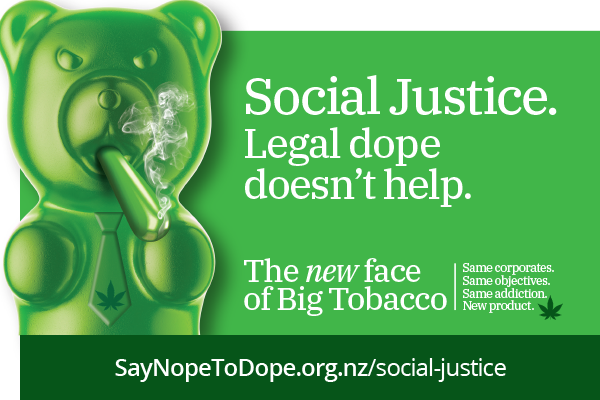
Media Release 8 January 2020
As pro-cannabis lobbyists and politicians in New Zealand argue that marijuana legalisation will increase social justice, disparities among use and criminal offence rates continue among race, ethnicity, and income levels in US states that have legalised marijuana. And a new paper published in the University of Pennsylvania Journal of Law and Public Affairs (JLPA) has provided concrete evidence from US states that have legalised cannabis.
Entitled “Marijuana Legalization in the United States: A Social Injustice”, the authors say that many proponents of legalisation have championed legalisation as a solution for real issues that disproportionately affect communities of colour, and that they cite the prevalence of minority groups jailed for minor possession charges as reason enough to “legalise” recreational marijuana which they insist would reduce the number of people in minority groups who are jailed for minor possession. But the paper says that “these arguments are predicated on a mythology that woefully misrepresents the impact of marijuana through the lens of social justice.”
Using governmental data, they highlight that the disproportionate impact of drug arrests, including for marijuana, in states that have legalised, remains stubbornly high. “The charge that marijuana legalisation will eliminate racial bias in the justice system is unfounded. The opposite has been proven.”
Evidence shows:
- in Washington DC, although total marijuana-related arrests decreased, distribution and public consumption arrests nearly quadrupled. Among adults, 84.8% of marijuana distribution or public consumption arrestees were African Americans
- the 2017 marijuana-related African American arrest rate in Colorado was nearly twice that of Caucasians
- Across Colorado, minority juveniles suffered. The average number of marijuana-related arrests among Hispanic juveniles increased 7.3%, and African American juveniles increased 5.9%
- drug suspension rates in Colorado schools with 76% or more students of colour are over two times higher compared to Colorado schools with fewer than 25% students of colour.
The research also highlights that the burgeoning marijuana industry has increasingly exploited minority communities with disastrous outcomes – similar to the pokie and alcohol industries here in New Zealand.
Evidence shows:
- higher crime rates follow areas in which marijuana stores are established
- the marijuana industry sees lower-income and minority communities as profit centers. “Just as Big Tobacco and liquor stores have targeted lower-income communities as an important consumer-base, the marijuana industry seeks a similar base to establish addiction-for-profit businesses.”
- while these stores are heavily concentrated in disadvantaged areas, their ownership does not mirror the communities. In fact, nationally, less than 2% of all pot shops are owned by minorities of any community
- there have also been public health impacts – the misrepresentation of marijuana’s effects has disproportionately impacted pregnant women in lower-income communities.
The authors say:
“..the health risks of marijuana are lost amid confusing and misleading advertisements that target communities that lack educational resources. Today’s high-potency marijuana is addictive, linked with serious mental health illnesses such as psychosis, and lowers educational outcomes, especially for those who use it heavily. Lower-income communities face a new threat to their health with inadequate resources to combat these effects.”
Contrary to the claims being made in New Zealand’s debate, legalisation of cannabis will not help social justice. Keeping cannabis and other drugs illegal through an appropriate application of the law which focuses on suppliers and dealers, that caters for “youthful indiscretions”, and provides an opportunity to intervene with addiction services and stop the progression of use, is as much a public safety policy as it is a public health policy. Police charges for use or possession of cannabis have fallen by 70% in the past decade, according to Ministry of Justice statistics.
But at a time when New Zealand’s mental health system is bursting at the seams, why would we go and legitimise a mind-altering product which will simply add to social harm?
This is not a ‘war on drugs’ – this is a defence of our brains and mental well-being.
FACT SHEET: https://saynopetodope.org.nz/social-justice/
ENDS
